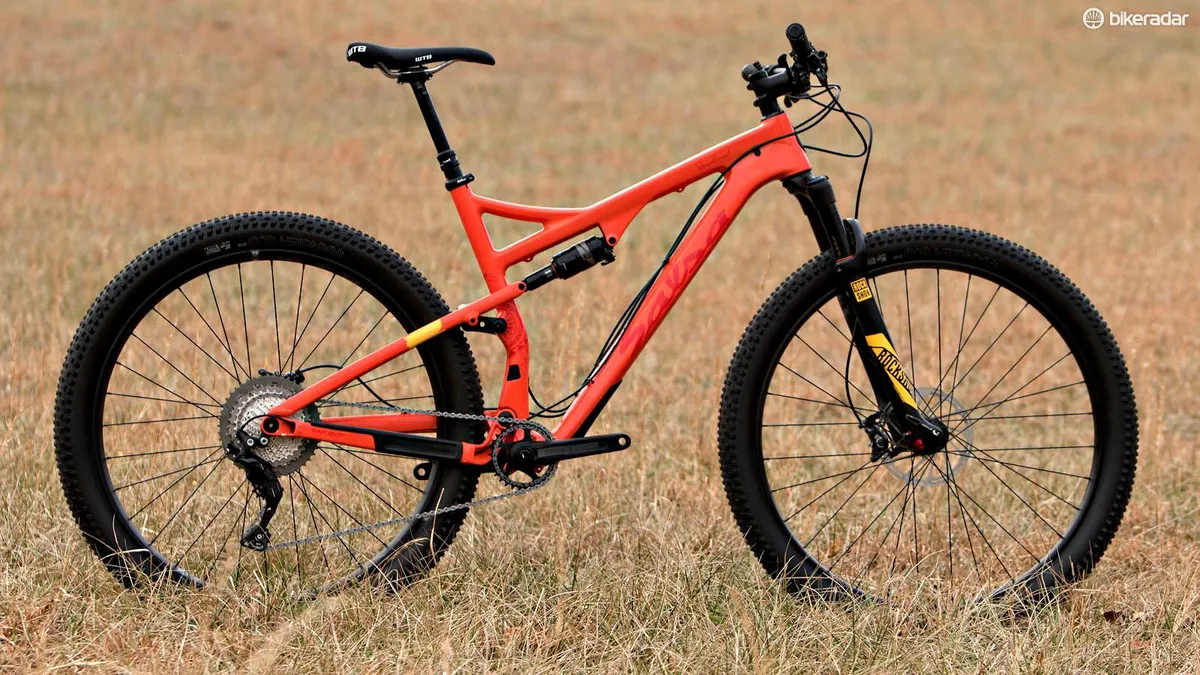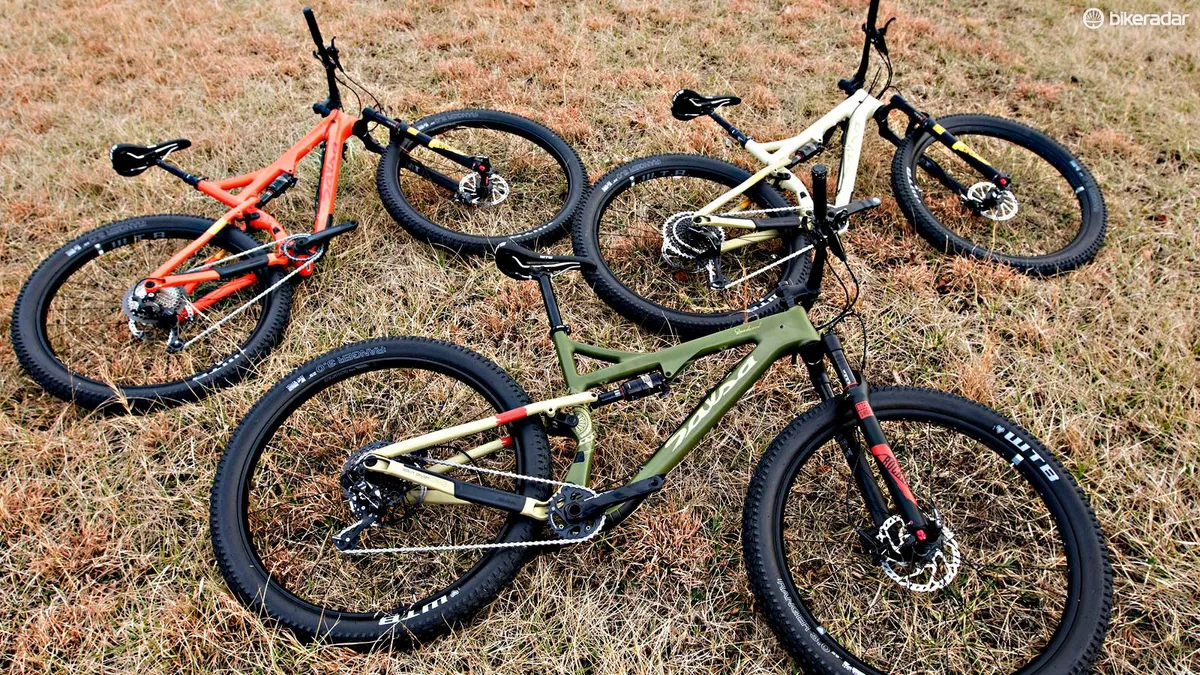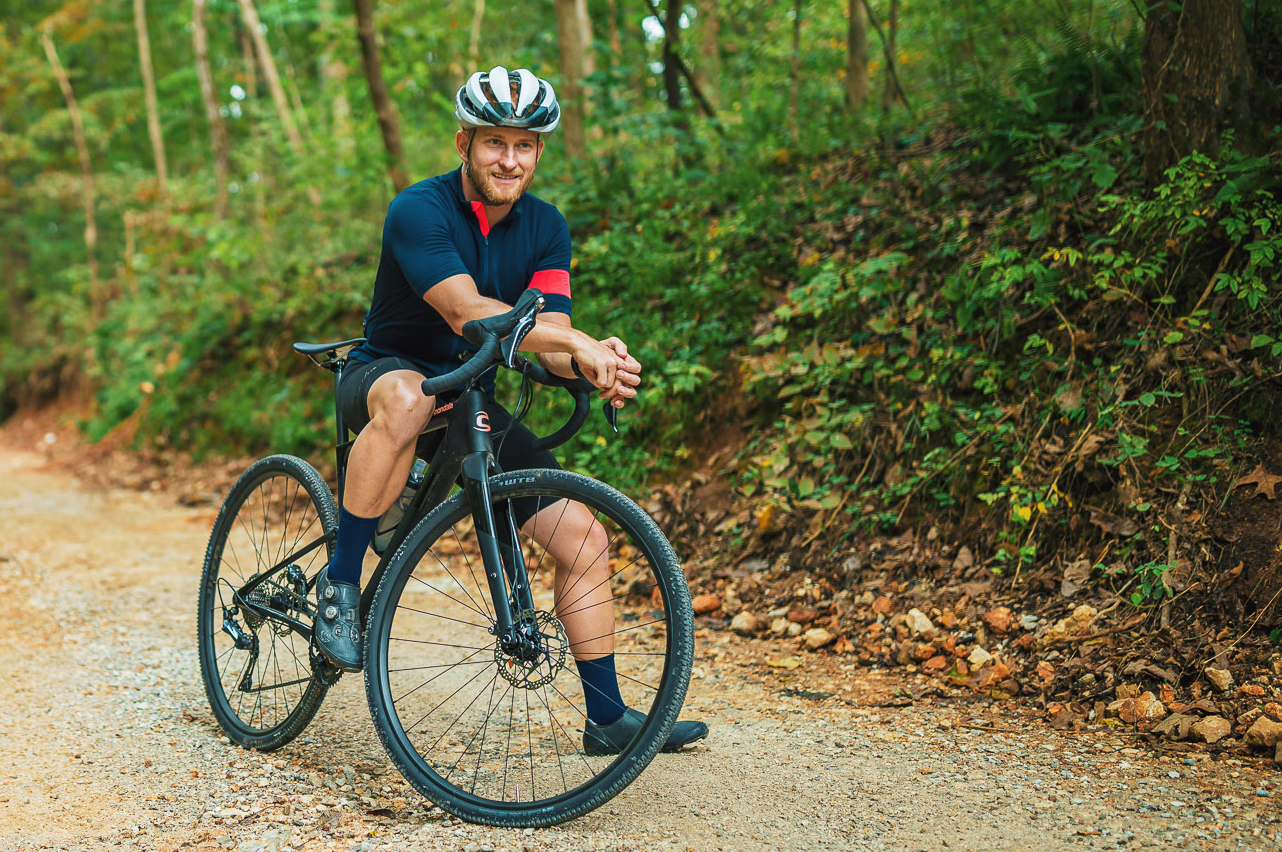Whenever a new breed of bicycle is launched the inevitable first question is always “who or what is it for?” Such is the case with the Salsa Deadwood SUS, a full suspension trail bike designed around 29x3in tires.
Salsa isn’t the first company to roll out a full suspension 29+ mountain bike — Lenz Sport and a handful of custom builders already lay claim to developing 29+ duallys.
It is the largest company to delve into this niche thus far and it seems to be the natural progression for this adventure-oriented brand.
Salsa has played a significant role in ushering niche markets such as adventure touring and fat biking into the mainstream.
The Deadwood SUS sits at the confluence of these two markets. It’s a short-travel trail bike designed for long haul rides with a hint of a fat bike flotation in the form of plus tires and suspension.
Salsa Deadwood design details
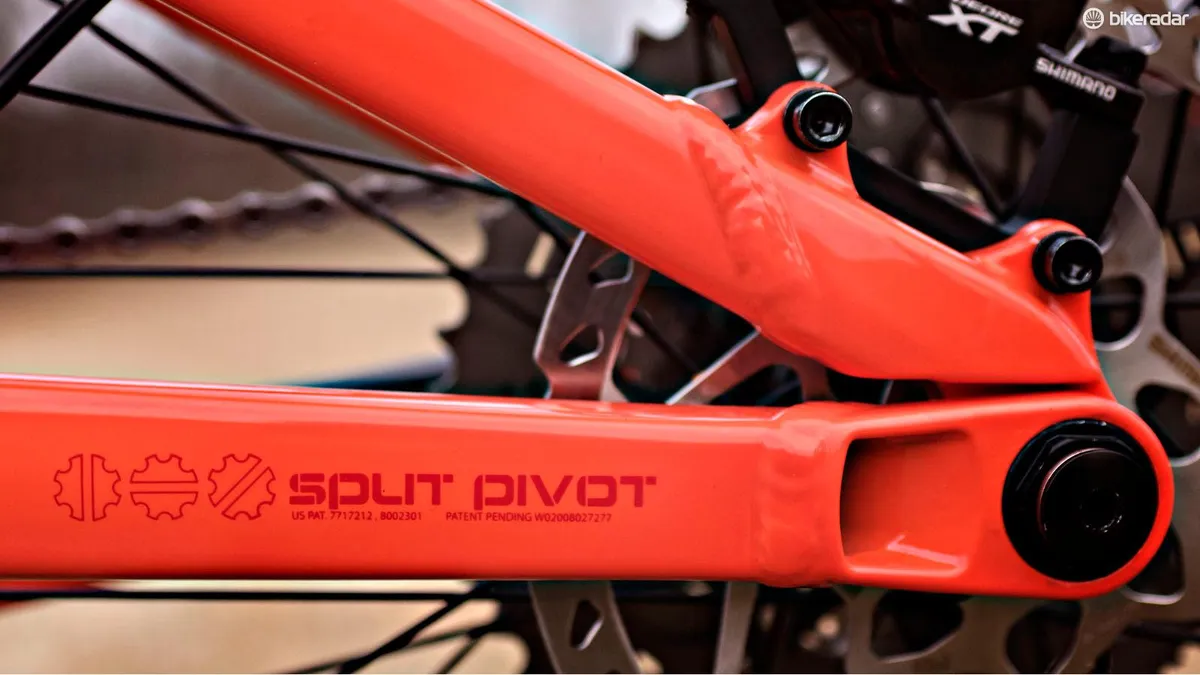
The Deadwood isn’t a ground-up design. It uses the same carbon mainframe as Salsa’s 120mm 29er trail bike, the Horsethief, however the alloy rear end is purpose-built to accommodate the wide tires.
For suspension, the Deadwood relies on a 100mm RockShox Pike RC fork.
A RockShox Monarch RT3 rear shock serves up 91mm via Dave Weagle’s Split Pivot suspension system.
These suspension numbers place the new Deadwood nearly in-line with the Spearfish, Salsa’s cross-country bike.

When asked if the Deadwood SUS will replace or stand beside the Spearfish, Salsa’s marketing manager, Mike Riemer, stated that the company would let the market decide which platform has more merit.
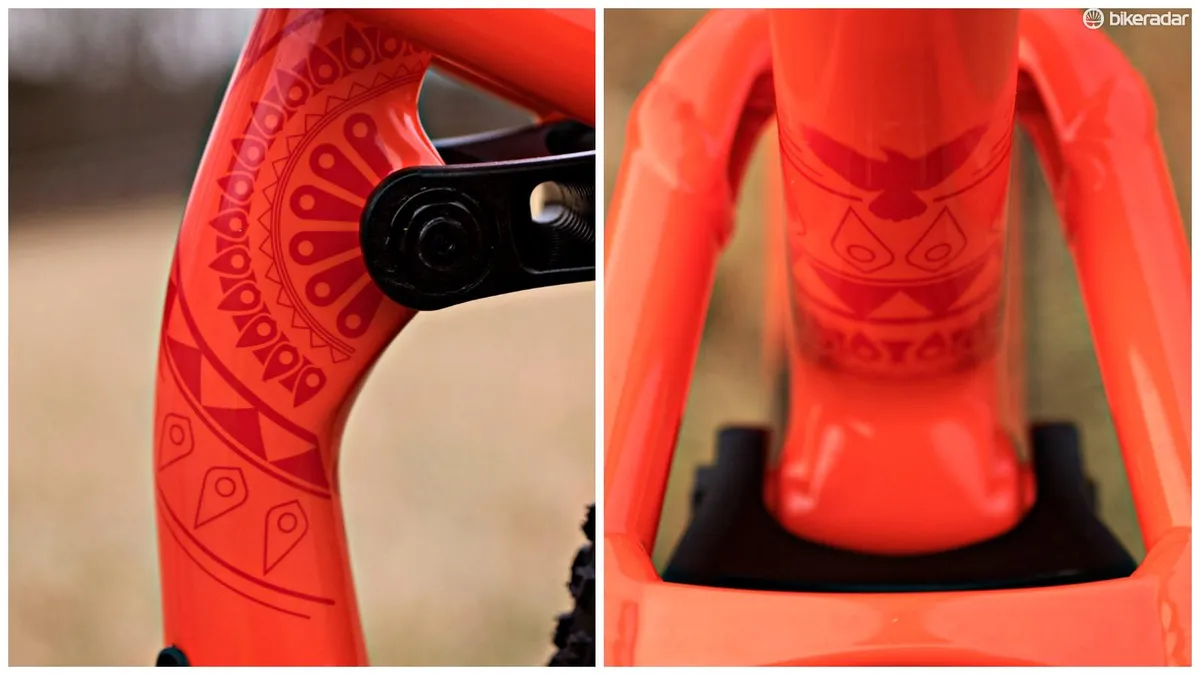
The Deadwood’s geometry is more trail bike than XC racer, with a 68-degree head tube angle, longer top tube measurements across all four frame sizes and longer, 449mm/17.6in chainstays.
The Deadwood can also be more than a plus bike. The 3in wide tires can be swapped for more traditional 2.3-2.5in rubber. In this respect, the Deadwood is the more versatile of the two platforms.
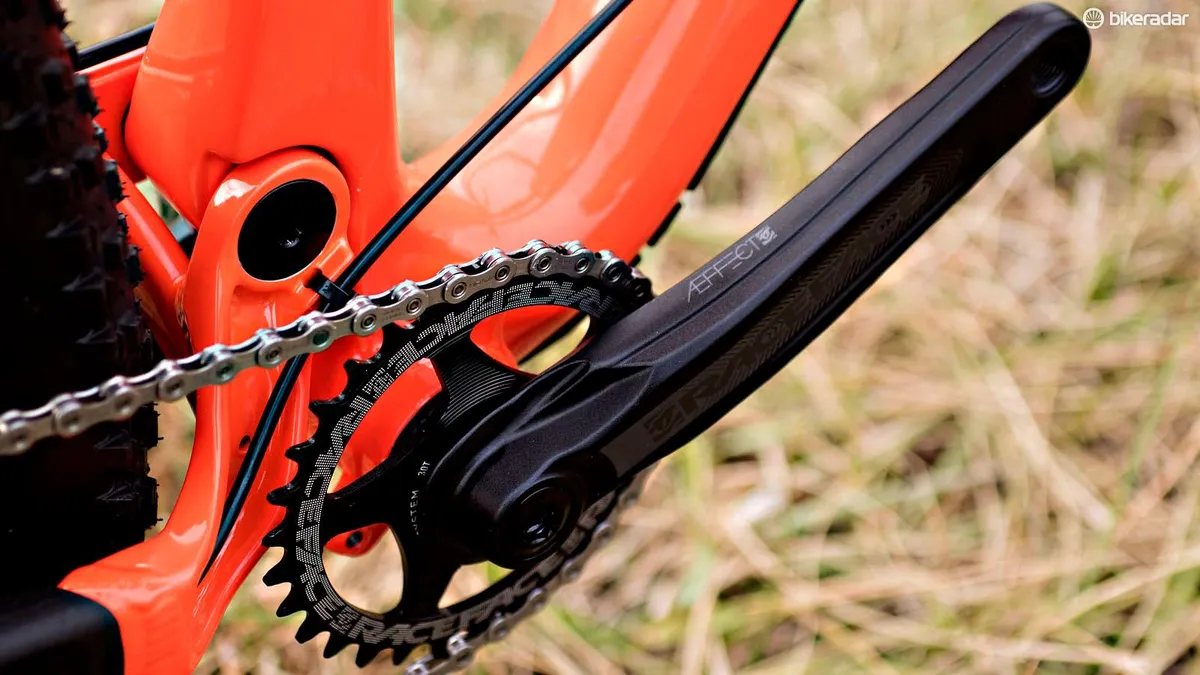
The Shimano XT-equipped Deadwood SUS tested here is the middle model in the three-bike line. As the name suggests, this model features a heavy XT spec, including XT brakes with 180mm rotors and a 1x11 XT drivetrain with a Race Face Aeffect crankset.
The size medium Deadwood I rode uses a 100mm RockShox Reverb. While large and XL Deadwoods come with 125 and 150mm droppers, respectively.
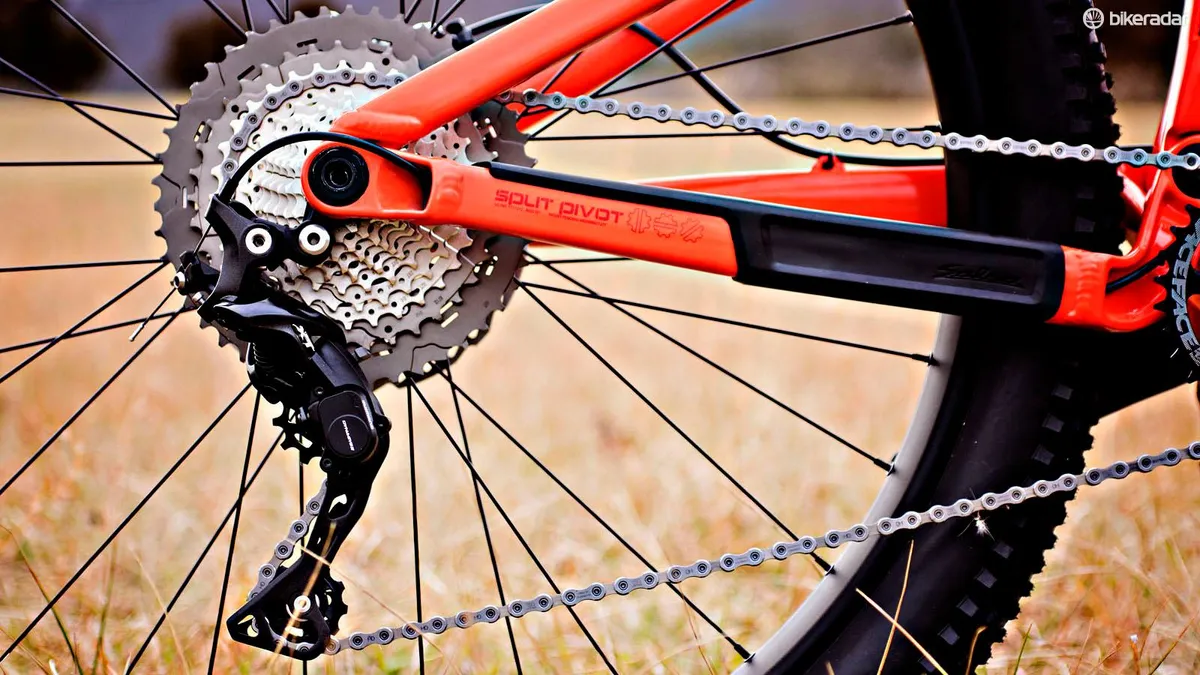
There was one significant deviation from the stock build for the Deadwood media camp. Salsa swapped the WTB Ranger tires for Surly’s 29x3in Dirt Wizards.
The WTB Rangers are lighter and faster rolling, but the high-speed descents and abundance of square-edged rocks necessitated tires with heavier casings and sturdy side knobs.
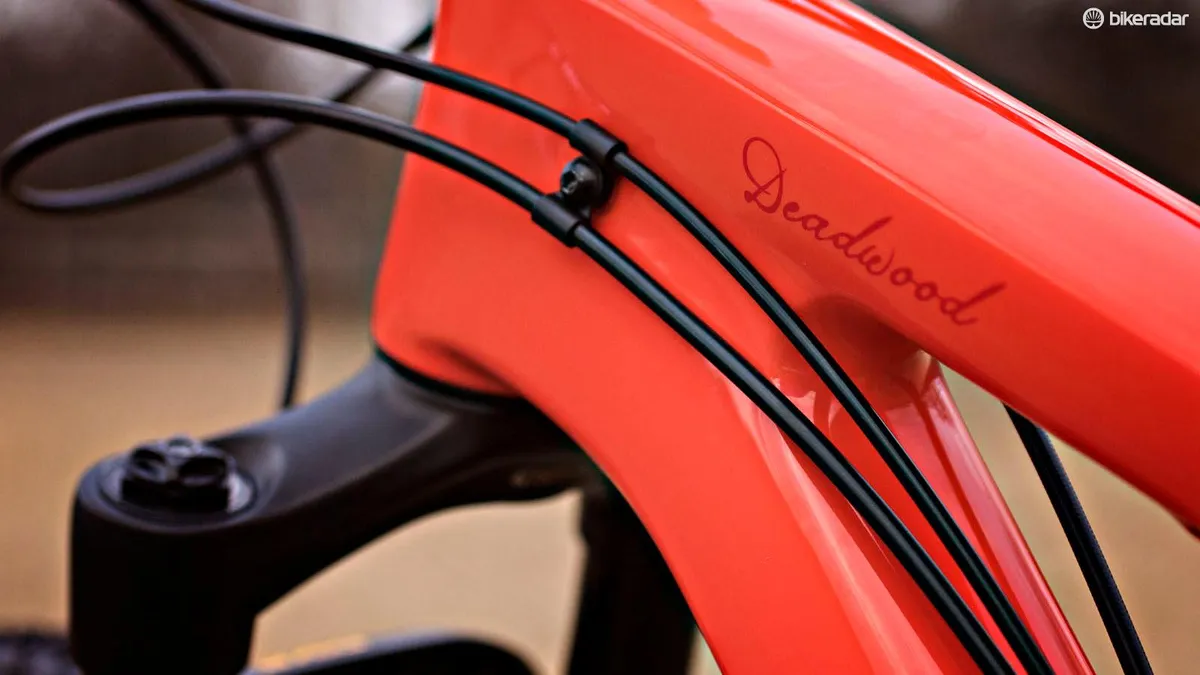
Virginia rocks

As someone who once lived there, I can confidently state that the eastern half of the United States is filled with outstanding and chronically under-appreciated singletrack.
Few areas exemplify this more than the trails traversing the mountains that form the border between Virginia and West Virginia.
Not afraid to stray from the beaten press-launch path, Salsa chose to debut the Deadwood in Stokesville, Virginia.
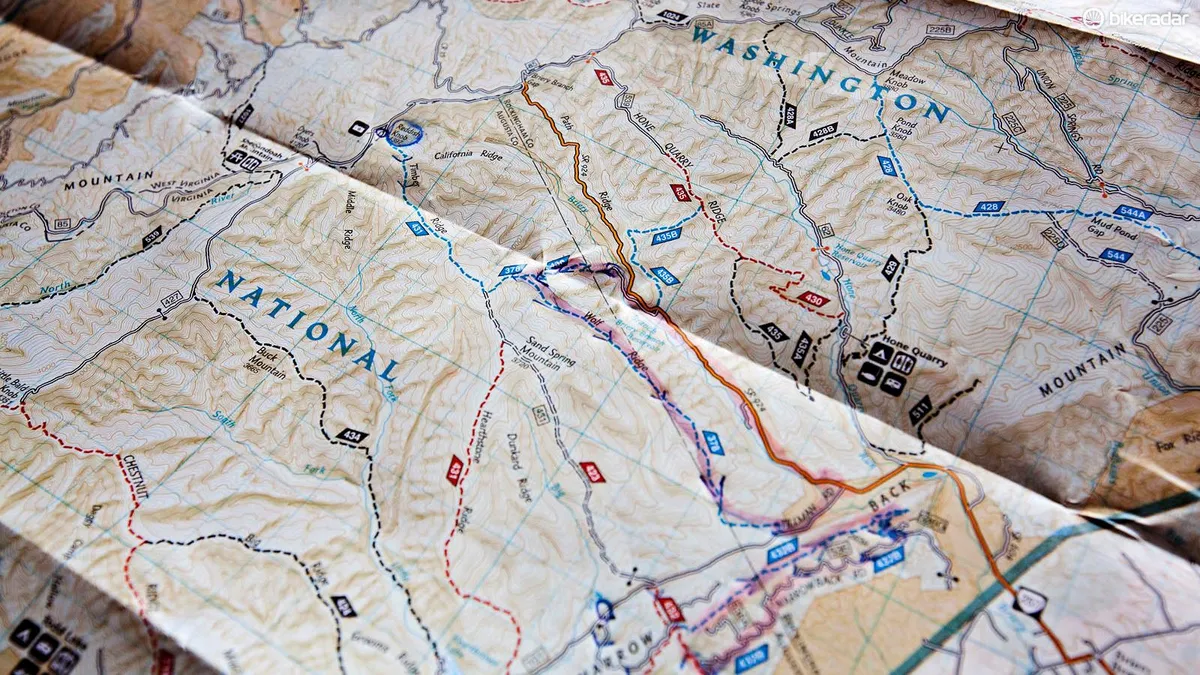
Some of the trails we rode were purpose-built. Many were forgotten logging roads, long since reclaimed by nature. Others retraced the steps of Confederate and Union soldiers during America’s Civil War.
If you've ever wondered what it feels like to be a drunken tugboat captain who doesn't care what's in your path, this is pretty much it
Over the course of three days and seventy miles of riding, I came to appreciate what 29x3in tires in a short-travel package can conquer.
With the aggressive tread of the Dirt Wizards and my tire pressure set in the mid-teens, there didn’t seem to be anything the Deadwood couldn’t climb, so long as I was able to maintain momentum.
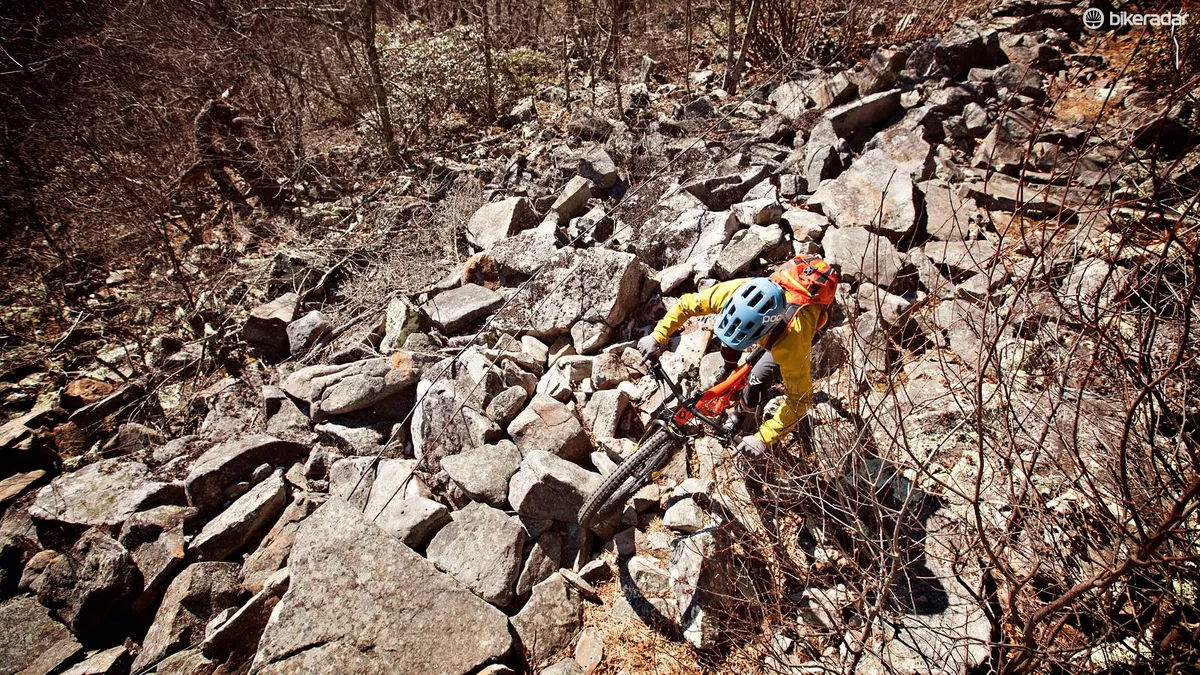
Accelerating to tackle steep pitches is not this bike’s strong suit.
Quick, punchy technical moves require significantly more energy than traditional 29ers. In these scenarios, the Deadwood’s saving grace was the Split Pivot rear suspension design, which is very efficient when stomping on the pedals.
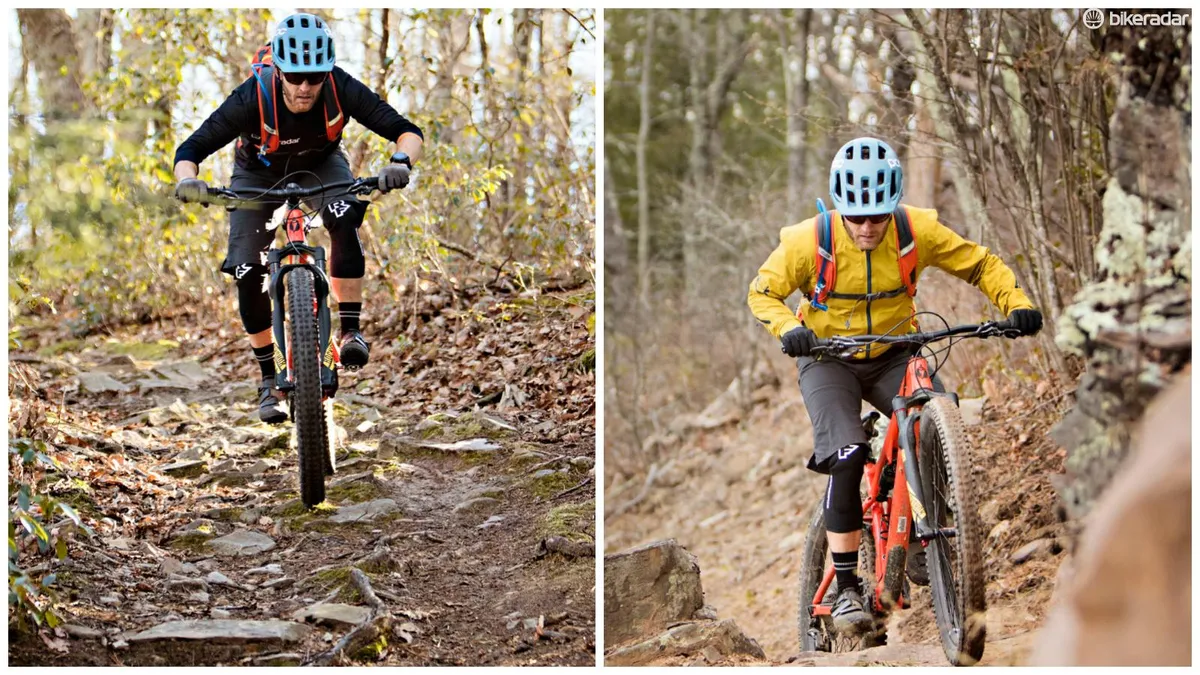
I left the shock in the open position while climbing and descending singletrack and only flipped the lockout on when riding roads to link up trails.
There was no surprise in how well the Deadwood handled rocky descents. The 29+ tires didn’t quite make up for the lack of suspension travel but they did impart a sense of invincibility. If you've ever wondered what it feels like to be a drunken tugboat captain who doesn't care what's in your path, this is pretty much it.
What was surprising was how well the Deadwood handled groomed trails with jumps and berms.
Despite its heft — around 31lb / 14kg — it could be coaxed into the air. Since the Deadwood comes up short on travel, it’s very easy to drive into the mid-stroke to pop off jumps and push through berms.
In these instances there was a hint of auto-steer at speed. It’s just a matter of getting used to the big tires. It’s subtle and feels more like a steering damper.
It's similar to the feeling experienced when transitioning from a 26in mountain bike to a 29er for the first time.
Salsa Deadwood early verdict
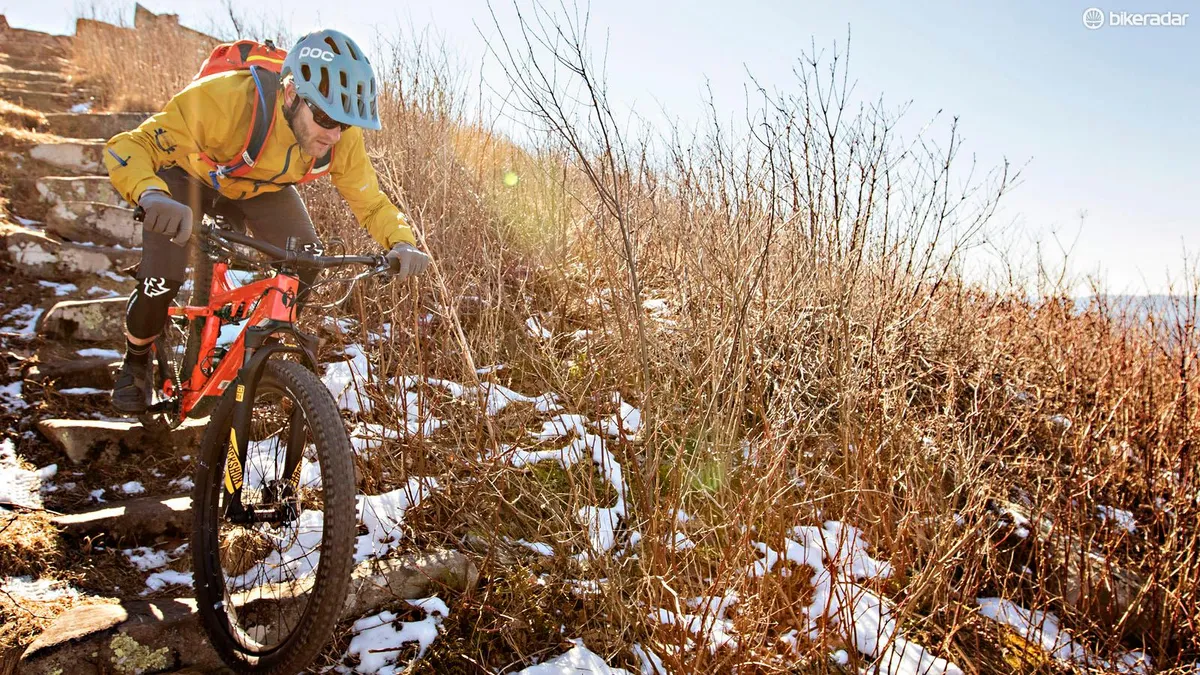
So back to our original question: who is the Deadwood SUS for?
The Deadwood excels at certain types of terrain and is outperformed by mainstream 29er trail bikes on others.
If your trails are technical but allow you to carry a lot of steam into rock gardens, you might appreciate this bike.
If you’re the type of mountain biker who rides a fat bike beyond the winter months and want something with a similar level of float and traction in a performance-oriented package, the Deadwood will fit the bill.
Lastly, the fact the Deadwood’s geometry also accommodates mid-sized 29in tires gives it an extra degree of versatility as a traditional 29er.
Salsa Deadwood SUS pricing, spec and availability
- Salsa Deadwood SUS with SRAM Eagle XO1 drivetrain, Guide RS brakes, RockShox Reverb seatpost (100mm S/M, 125mm L, 150mm XL), 100mm RockShox Pike fork, RockShox Monarch RT3 shock, WTB Asym i35 rims laced to DT Swiss 350 hubs, 180mm rotors, 30t chainrings and WTB’s 29x3in tubeless-ready Ranger tires — $5,999 / AU$9900.
- Frame-only option (with RockShox Monarch RT3 shock) — $2,499. (UK pricing has yet to be announced)
- Salsa Deadwood SUS with Shimano XT brakes, 1x11 drivetrain configuration with an 11-46 cassette, RockShox Reverb seatpost (100mm S/M, 125mm L, 150mm XL), 100mm RockShox Pike fork, RockShox Monarch RT3 shock, XT-equipped, WTB Asym i35 rims laced to DT Swiss 370 hubs, 180mm rotors, 30t chainrings and WTB’s 29x3in tubeless-ready Ranger tires — $4,499 / AU$7900. (UK pricing has yet to be announced)
- Salsa Deadwood SUS with SRAM GX1 drivetrain, SRAM Level T brakes, RockShox Monarch RT3 shock, WTB i35 rims laced to DT Swiss 370 hubs, 180mm rotors, 30t chainrings and WTB’s 29x3in tubeless-ready Ranger tires — $3,799 / AU$6,250. (UK pricing has yet to be announced)
The Deadwood SUS is available now.

